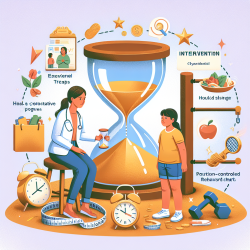Understanding the Impact of Screen Time on Adolescent Mental Health
In today's digital age, screen time is an integral part of adolescents' lives. However, the growing concern is its impact on mental health. A recent study titled Longitudinal associations between different types of screen use and depression and anxiety symptoms in adolescents sheds light on this issue. The study, published in Frontiers in Public Health, provides valuable insights into how various types of screen usage affect anxiety and depression in teenagers.
Key Findings from the Study
The study analyzed data from 17,174 Canadian high school students over two years, focusing on five types of screen activities: watching TV/movies, playing video games, talking on the phone, internet surfing, and texting/messaging. The results revealed significant associations between screen time and mental health symptoms:
- Increased screen time was linked to higher anxiety and depression symptoms.
- Different screen activities had varying impacts, with phone use and internet surfing showing the strongest associations with anxiety.
- Sex differences were observed, with females experiencing more anxiety from TV and internet use, while males were more affected by internet surfing.
Implications for Practitioners
For practitioners working with adolescents, these findings emphasize the importance of monitoring screen time and understanding its potential effects on mental health. Here are some strategies to consider:
- Screen Time Guidelines: Encourage adherence to recommended screen time limits, such as the Canadian guideline of no more than two hours of recreational screen use per day.
- Holistic Approach: Promote a balanced lifestyle that includes physical activity, sufficient sleep, and face-to-face social interactions to mitigate the negative impacts of screen time.
- Individualized Interventions: Recognize that screen time effects can vary by sex and screen type, necessitating tailored interventions for different adolescents.
Encouraging Further Research
While this study provides crucial insights, there is a need for further research to explore the content and context of screen use, as well as its long-term effects on mental health. Practitioners are encouraged to contribute to this growing body of research to better inform interventions and public health strategies.
To read the original research paper, please follow this link: Longitudinal associations between different types of screen use and depression and anxiety symptoms in adolescents.










